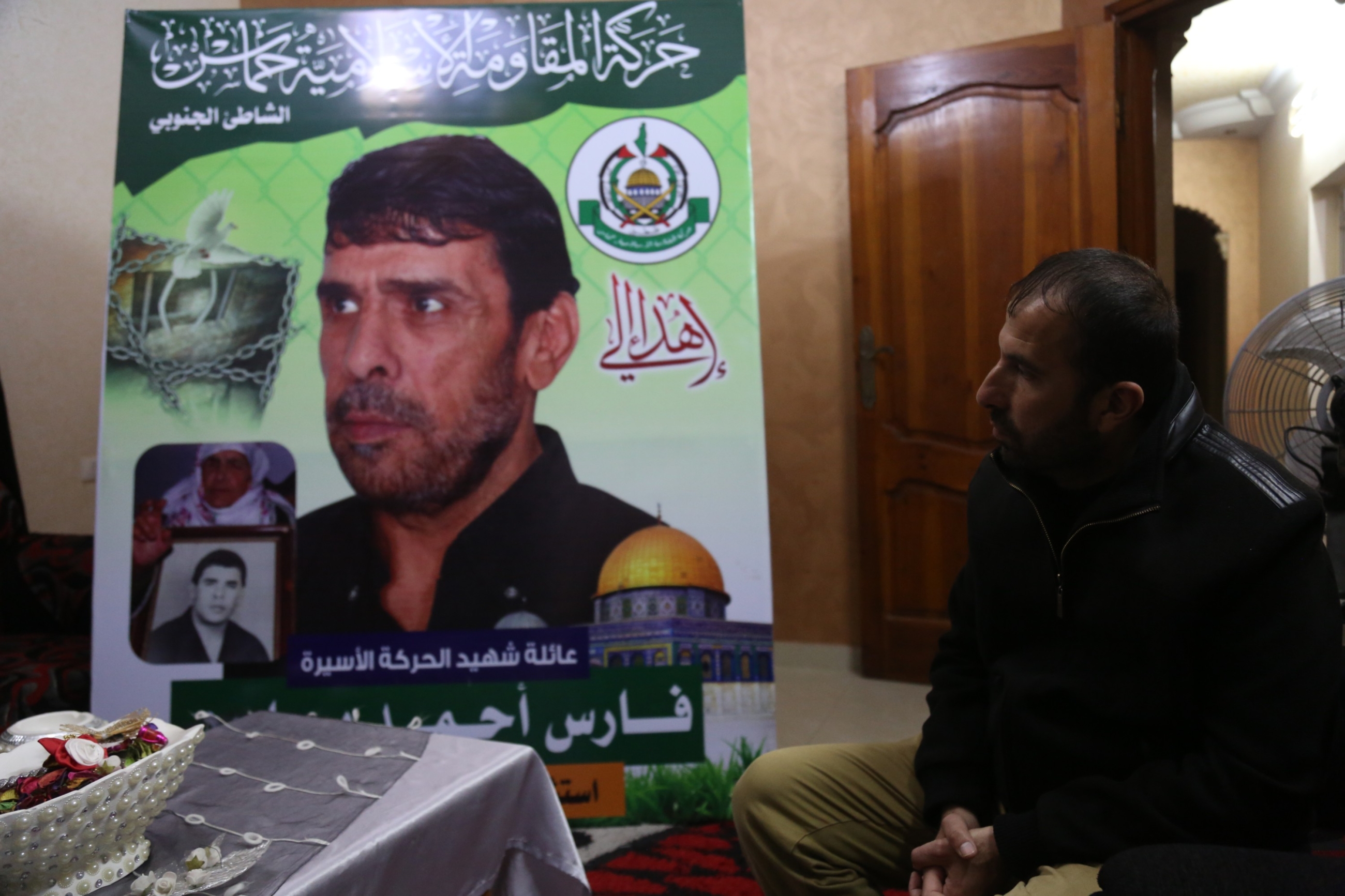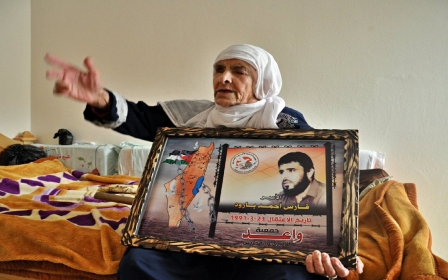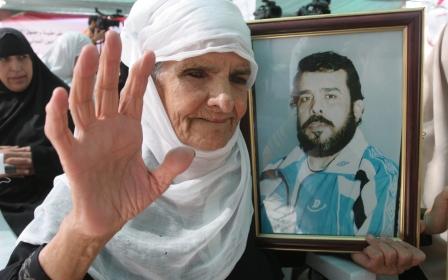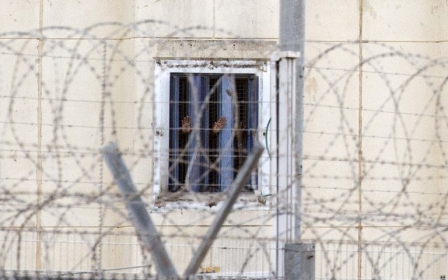Palestinian family still awaits return of deceased prisoner's body to Gaza

More than a week after the death of Palestinian prisoner Fares Baroud following what prisoners’ rights groups have denounced as medical negligence, his family was still waiting on Friday for Israeli authorities to inform them when his body would be returned to the besieged Gaza Strip for burial.
Baroud, 51, had been imprisoned by Israel for 28 years for killing an Israeli settler when he died on 5 February.
According to official Palestinian Authority news agency Wafa, an autopsy carried out by the Abu Kabir Forensic Institute in Tel Aviv concluded on Tuesday that while a heart attack was the official cause of death, Baroud had suffered from a series of chronic health issues - including hepatitis C, hypertension, stomach ulcers, cirrhosis of the liver and kidney failure.
“As a result of his continuous isolation and long years spent in the prisons of the occupation, Fares had a liver disease and had a part of his liver removed three months ago,” Mohammed Obeid, a cousin of Baroud, explained to Middle East Eye.
Obeid said Baroud was often only given painkillers to deal with his health condition and had been taken back to his cell a mere two days after his last hospitalisation.
New MEE newsletter: Jerusalem Dispatch
Sign up to get the latest insights and analysis on Israel-Palestine, alongside Turkey Unpacked and other MEE newsletters
“This was the biggest cause of his health deterioration, as well as his grief over his mother’s death before she could see him again.”
In addition to having spent a total of 10 years in solitary confinement, Baroud was also denied visits from his mother in prison since 2005.
His mother, Raya Obeid, died in May 2017 without having seen her son in 12 years.
For Osama Wehdi, the Gaza spokesman of the Palestinian Committee for Prisoners Affairs, harsh imprisonment conditions and a deliberate lack of medical care were squarely to blame for Baroud’s death.
Out of some 5,450 Palestinians detained by Israel according to NGO Addameer, Wehdi estimates that some 1,000 are sick or injured, 300 of whom suffer from chronic and fatal diseases.
“Medical negligence is a tool used by Israeli prison service to kill Palestinian detainees very slowly - especially by using this against prisoners who are suffering from major diseases,” he told MEE. “We need intervention from the international community.”
Compounding the family’s grief regarding the circumstances of his death, Israeli authorities failed to reach a decision on Thursday finalising the return of Baroud’s body to Gaza for burial.
“We expect the [Israeli] court to release his body - they punished him and he spent all those years in prison. What more does the occupation want?” Obeid said.
“The most important thing for us is the dignity of the deceased and we hope that we will achieve his will and bury him by his mother’s side.”
Obeid remembered his cousin as exceedingly generous, regularly sending part of the monthly salary he received from the Palestinian Authority as a prisoner to help out his sister, former prisoners and poor neighbours.
But he expected that little would be done by Israeli authorities to address the issues raised by Baroud’s death.
“We do not trust the occupation and we don’t expect it to provide us or Fares our rights. We expect nothing but injustice.”
Samar Abu Elouf contributed reporting from Gaza.
Middle East Eye delivers independent and unrivalled coverage and analysis of the Middle East, North Africa and beyond. To learn more about republishing this content and the associated fees, please fill out this form. More about MEE can be found here.




